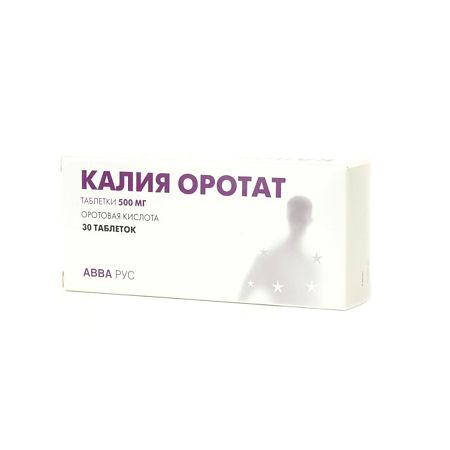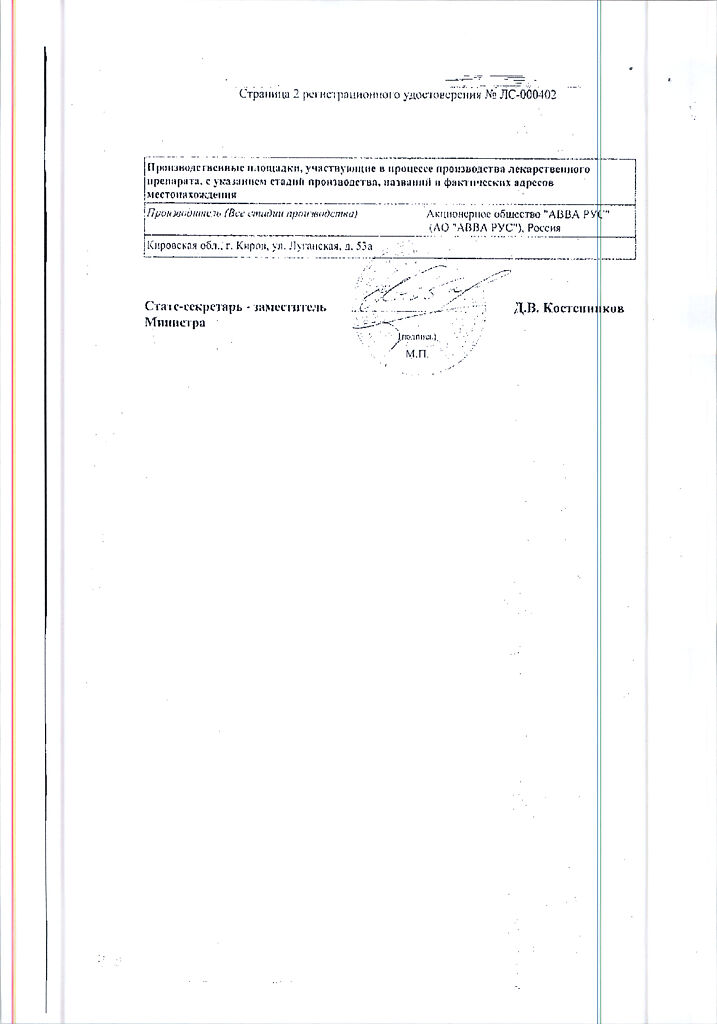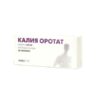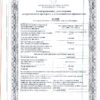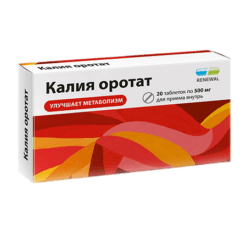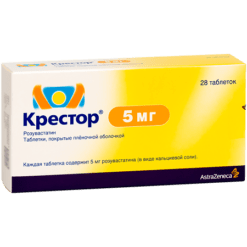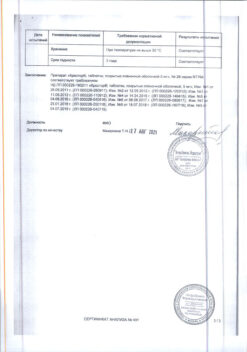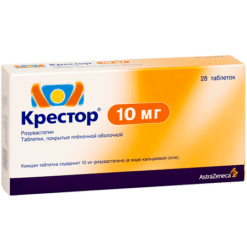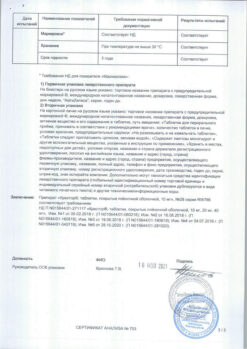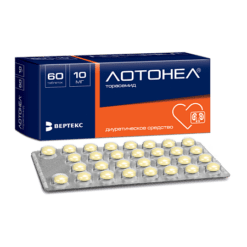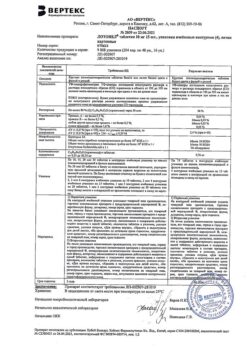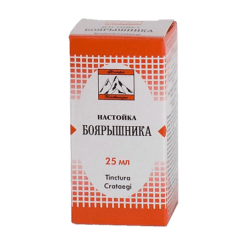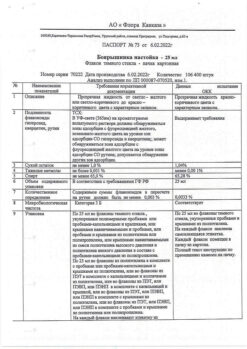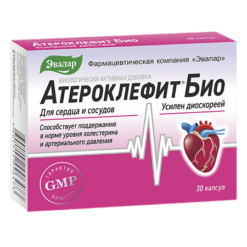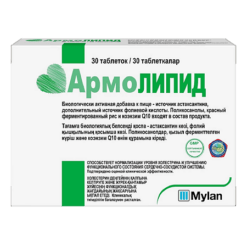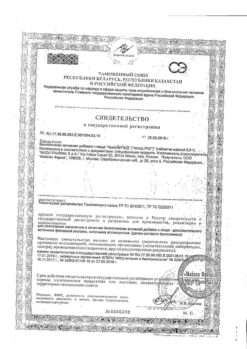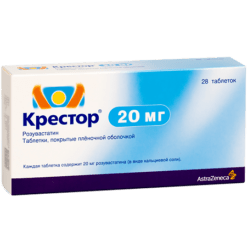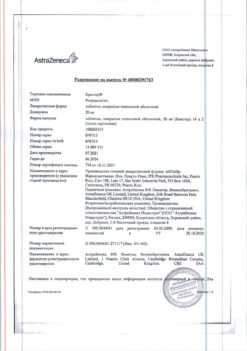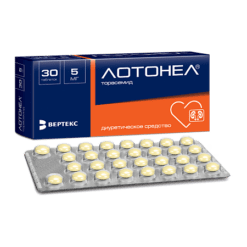No products in the cart.
Potassium orotate, tablets 500 mg 30 pcs
€1.00
Out of stock
(E-mail when Stock is available)
Description
Pharmacodynamics
Orotic acid is one of the precursors of pyrimidine nucleotides that are part of nucleic acids that are involved in the synthesis of protein molecules, therefore, orotic acid salts are considered as substances of anabolic action and used in disorders of protein metabolism, for their stimulation.
Usually the potassium salt of orotic acid (potassium orotate) is used. Potassium orotate stimulates the synthesis of nucleic acids, albumin production in the liver (especially in conditions of prolonged hypoxia), increases appetite and has diuretic and regenerating properties.
Pharmacokinetics
After oral administration, 10% of the ingested dose is absorbed in the gastrointestinal tract. It is converted to orotidine-5-phosphate in the liver. It is excreted in the urine (30% as metabolites).
Indications for administration
As an adjunctive agent in liver and biliary tract diseases (caused by acute and chronic intoxication, except for organic liver and biliary tract diseases):
– as part of the combined therapy of chronic heart failure and heart rhythm disorders;
– alimentary and alimentary-infectious hypotrophy in children;
– chronic physical overexertion.
Indications
Indications
Potassium orotate is used in complex therapy in combination with other drugs (vitamins, cardiotonic drugs, etc.):
Active ingredient
Active ingredient
Composition
Composition
1 tablet contains:
the active ingredient:
Potassium orotate 500 mg,
excipients:
Lactose,
Potato starch,
gelatin medical,
stearic acid.
How to take, the dosage
How to take, the dosage
Potassium orotate is administered orally (1 hour before a meal or 4 hours after a meal). Dose of Potassium orotate for adults is from 0.5 to 1.5 g per day in 2-3 receptions (250-500 mg 2-3 times a day). The course of treatment is 20-40 days (in some cases longer).
If necessary, after a one-month break the course of treatment is repeated. In individual cases, depending on the effectiveness and tolerability, the daily dose of Potassium orotate for adults is increased to 3 g.
In children (with alimentary and alimentary-infectious hypotrophy, anemia, in convalescence period after diseases, etc.)
Potassium orotate is prescribed at the rate of 10-20 mg per 1 kg of body weight during 2-3 times a day.
The course of treatment is 3-5 weeks. If necessary the treatment course is repeated after a month’s break.
Interaction
Interaction
Potassium orotate slightly reduces the toxicity of cardiac glycosides;
the effect is increased when it is combined with magnesium preparations.
Accumulants and coagulants may slightly reduce absorption of potassium orotate in the gastrointestinal tract.
Special Instructions
Special Instructions
Does not cause drowsiness and decrease the speed of psychomotor reactions.
During treatment it is desirable to follow a diet.
Contraindications
Contraindications
Individual intolerance (including hypersensitivity in anamnesis) to orotic acid or its salts, liver cirrhosis with ascites.
Potassium orotate is used with caution:
– renal failure;
– pregnancy and lactation.
Side effects
Side effects
Additional information
| Shelf life | 4 years. |
|---|---|
| Conditions of storage | In a dry place, out of the reach of children, at a temperature not exceeding 25°C. |
| Manufacturer | Avva Rus, Russia |
| Medication form | pills |
| Brand | Avva Rus |
Other forms…
Related products
Buy Potassium orotate, tablets 500 mg 30 pcs with delivery to USA, UK, Europe and over 120 other countries.

